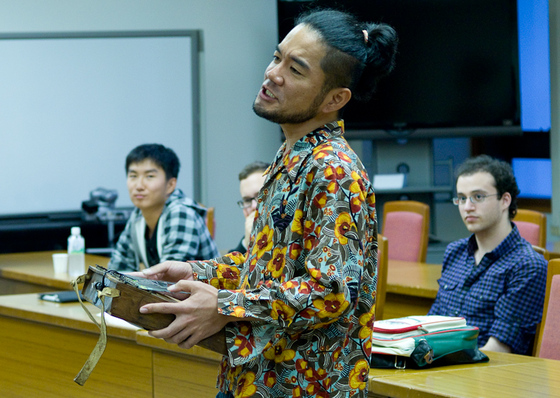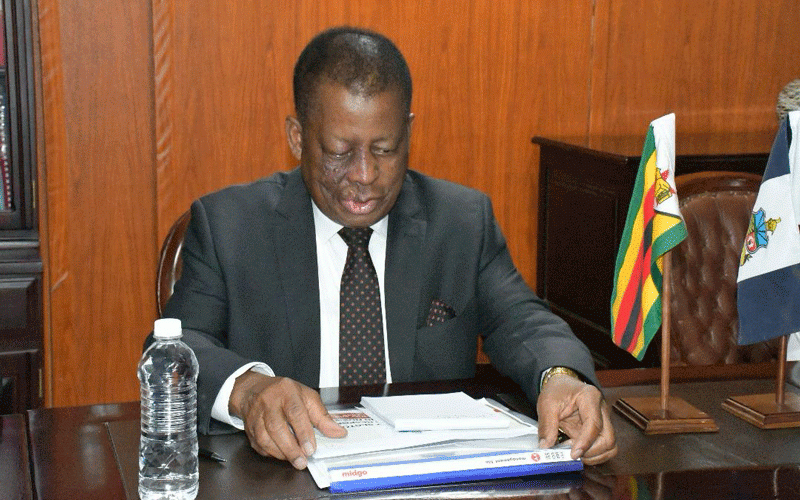
The year 2020 has proved to be disastrous for many folks. Instead of ending on a good and joyous note, no major gig took place at the end of this year as was the case in the past. The only positive thing I can think of is that several musicians wrote Covid-19 songs and also songs about gender-based violence.
in the groove
with Fred Zindi
After the eleventh hour cancellation of the Best of Both Worlds (BBW) concert, where Jah Prayzah and Winky D were billed to “face off” and which was also scheduled for livestreaming, the promoters will have to do a re-think.
Organisers of the concert, Kayse Connect and Gateway Stream Music, have said that they decided to cancel the show at the last-minute due to time constraints. They do not blame the police, other promoters or politicians for the cancellation. After planning this for weeks, which I assume included getting the prerequisite clearance from both the police and the National Arts Council, booking the venue, rigging the music equipment onto the stage, advertising on all forms of media and selling tickets, this explanation does not seem to make sense to me.
The event was postponed at the eleventh hour leaving music lovers, some who were already at the venue and those who had bought tickets for the live event, to watch online through pay-per-view, disgruntled.
Kayse Connect representative Elton Kurima apologised for the last-minute cancellation and assured music lovers that the event would be held at a later date. He said that they cancelled the show because of time constraints due to lockdown protocols. But were they not aware of these restrictions beforehand when planning this concert? I wonder.
Whatever the reason, there is no doubt in my mind that a great deal of money was lost in the process and I would not be surprised if these organisers, Kayse Connect and Gateway Stream Music, fail to resurface.
- Chamisa under fire over US$120K donation
- Mavhunga puts DeMbare into Chibuku quarterfinals
- Pension funds bet on Cabora Bassa oilfields
- Councils defy govt fire tender directive
Keep Reading
Music promotion is often considered to be risky business because it is unpredictable. Every business comes with its own challenges. Disasters are normally a result of failing to put preventive measures that counter-act these challenges. In the case of last week’s cancellation, angry fans could have rioted or clashed with the police who were seen to be at the scene to enforce Covid-19 restrictions. Fortunately, this did not happen.
On the same night of the BBW cancellation, police raided another venue in Harare where a local band was performing in front of around 120 people. The venue owner, who prefers to remain anonymous, gave the six constables a beer each and some US$60 in order to be allowed to continue. This is what he said: “They came around 9:30pm and told us to close, but the patrons who were drinking and dancing to sweet music would not hear of it. Some of them asked the cops if they could finish drinking their beers. We sat down with the cops and they gave me their conditions, which I agreed to. My profits for the night all went to ZRP!”
At another venue in Westlea, close to 200 patrons were seen to be merrymaking as they went into the popular night club without wearing masks or sanitising themselves at the entrance, let alone keeping social distance. As far as patrons of this club are concerned, everything has gone back to normal.
One would ask why such gigs are also not cancelled during these Covid-19 times.
Even before Covid-19 came into existence, there were several cases of cancellation of gigs. Cancellation has always been a painful exercise to music promoters.
We have had situations in the past when last-minute cancellations took place. For instance, my friend — the late Paul Brickhill — told me that in 2012, the Book Café hosted Japanese mbira player Sakaki Mango.
Just a few minutes before he went on stage, the authorities appeared and closed the Book Café because the venue’s liquor licence had expired. The Book Café had a licence which allowed them to sell liquor and have live music up to 11pm, which apparently they had not renewed after its expiry date. They could not re-schedule Sakaki’s performance because he was leaving the country the next day. The patrons for that show were angry because they could not get refunds but were told that they could attend the next show at the venue free of charge. All the money which had been used to book the artiste, hire stage equipment, for publicity and other preparatory necessities was therefore lost.
No doubt, Kayse Connect and Gateway Stream Music, organisers of the BBW concert, which did not take place, experienced the same.
The organisers claim that they postponed the show, but did not give any date for the future concert. Are they going to try the same thing during the Covid-19 period or after the virus has been defeated? Many music promoters say similar things, but in the end they go into hiding. The question to ask now is: “Will the same audience go back to this failed concert?”
Audience development is a complicated issue. It is something that requires public trust and confidence into what it is one is doing. Every artiste and arts organisation is looking for ways to establish a fan base and an audience and is trying to answer the same question. We’ve identified a problem and we’re going to “build” something to solve it. Sounds so simple, doesn’t it?
It’s not simple. It’s so complex, in fact, that I think that the question itself is actually a linguistic deception, a euphemism perhaps, that cleverly masks the enormity of the task. When we ask: “How do we develop and maintain a strong audience?” What we are really saying is: “How can we convince hundreds of people to alter and expand their aesthetic sensibilities and their cultural proclivities so that they include our promotion to such an extent that they will attend our postponed concerts and purchase tickets again?”
And that statement itself is embedded within another Herculean task: “How can we convince people to embrace our second coming after we failed the last time?”
That’s a tall order that seems insurmountable. Frankly speaking, it can’t be done, at least not as part of a prefabricated “strategy” to build an audience. If a solution existed, wouldn’t one of the thousands and thousands of creative artistes, agents, managers and the many music collectives, societies and alliances have found it? I realise that this is not what anyone in the music promotion business wants to hear, but I also don’t think it is helpful to continue pretending that there is a solution out there somewhere, just waiting for us to discover it.
Music promotion needs experienced people. It is not a fly-by-night activity where anyone who thinks they can make money by calling a popular artiste to perform can win the game without much thought put into it.
What I’ve seen from people who have left the music promotion “business” behind is that they are generally much happier.
Granted, it’s not an easy decision to make. We have so much of our self-image invested in the romantic mythology that swirls around music promotion, and that mythology includes the idea that a “day job” is a cop-out, the kiss of death, not something that a serious promoter would ever do. But it seems to me that if a creative and artistically independent life is the goal, then the solution, in an era of Covid-19, dwindling government support to the arts industry, economic meltdown and an apathetic public, is to finance it with other productive work instead of music promotion.
I can understand the musicians themselves getting impatient with the Covid-19 restrictions. A lot of them are suffering due to this pandemic which does not allow them to perform in front of more than 100 people. Then they must stop their performance before 10pm, which is curfew time.
All this is too much for the average musician. We do hope that with the new vaccines from Pfizer and Mordena being rolled out, this pandemic will soon be a thing of the past and there will be no more concert cancellations.
Despite all this, I wish you all a prosperous 2021.
l Feedback: [email protected]











